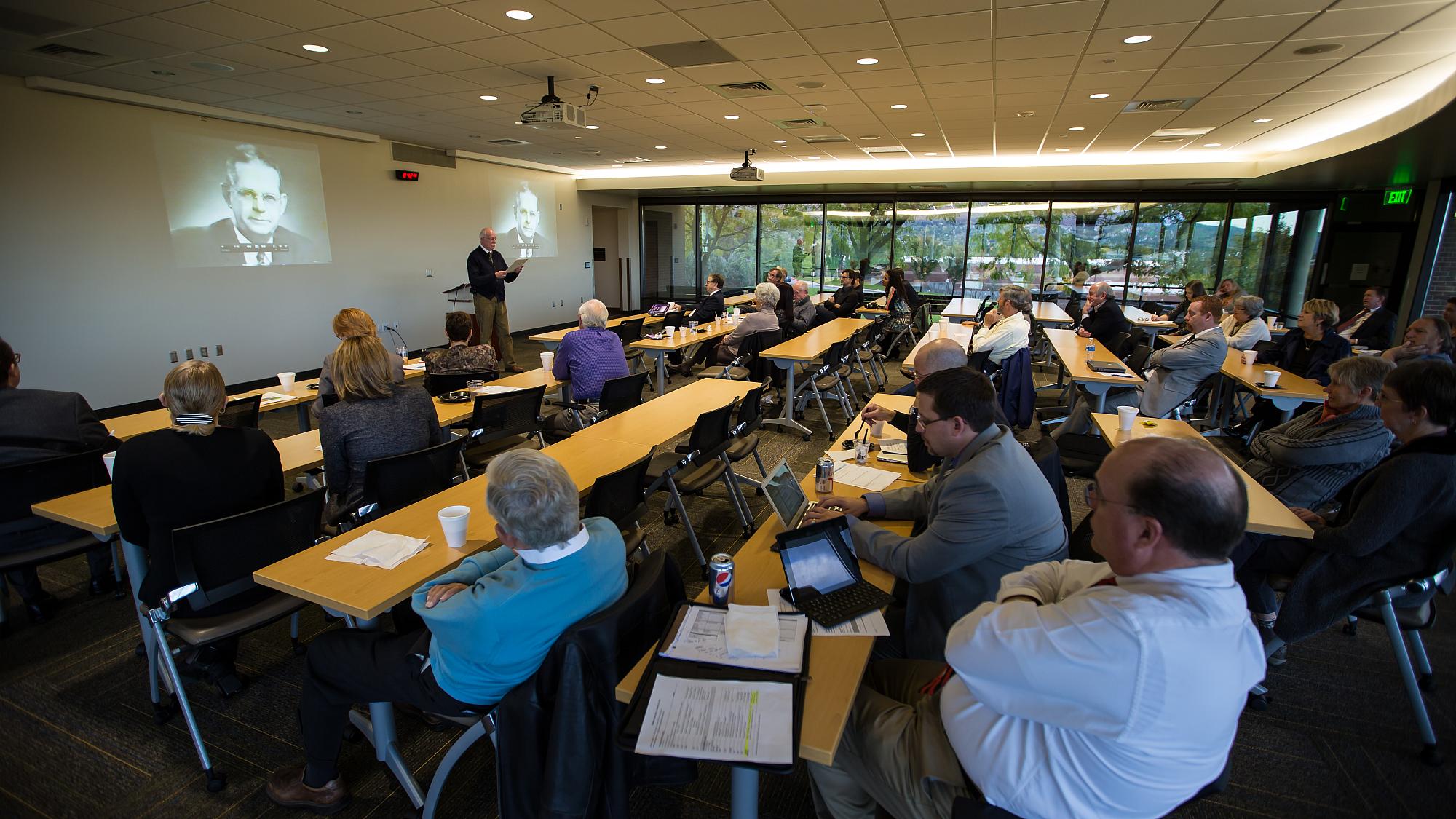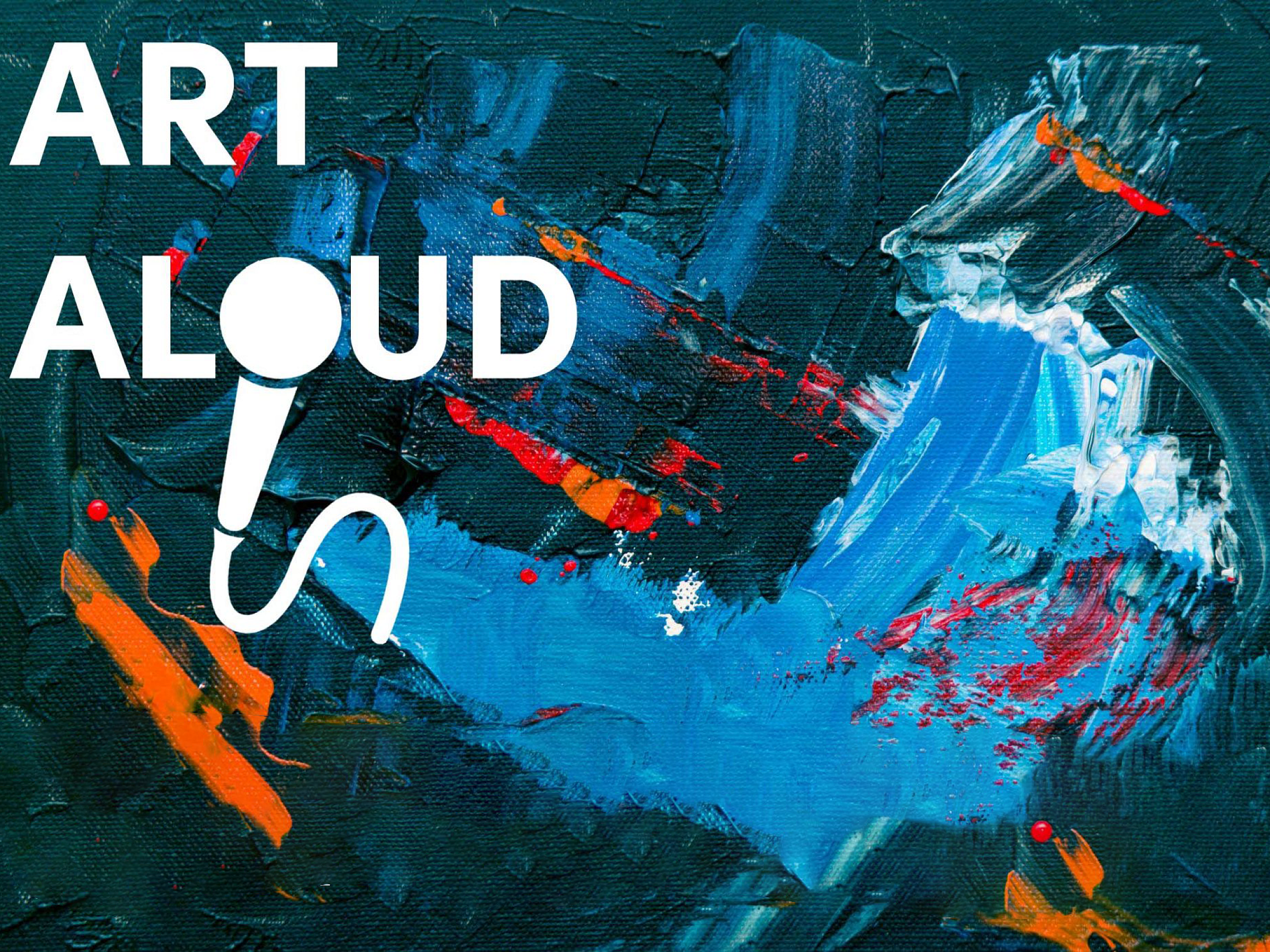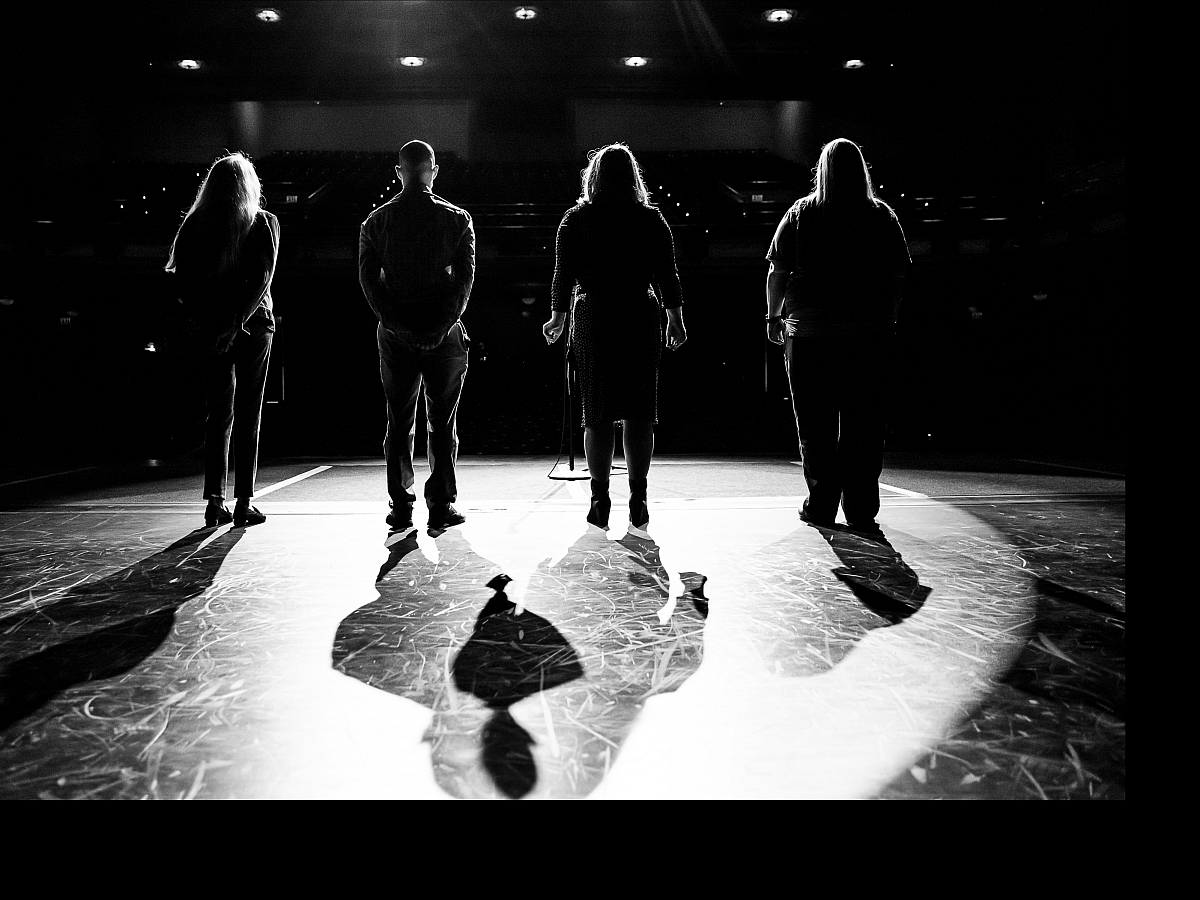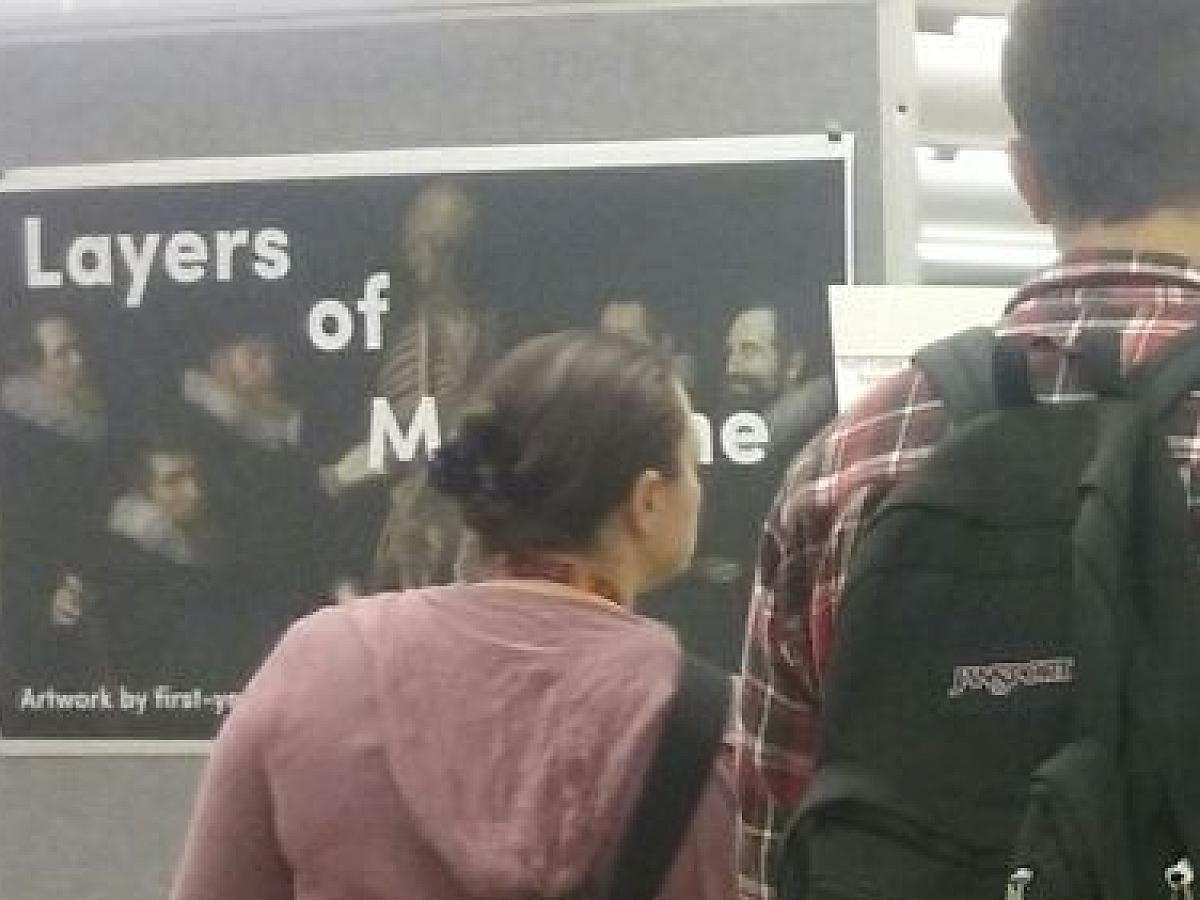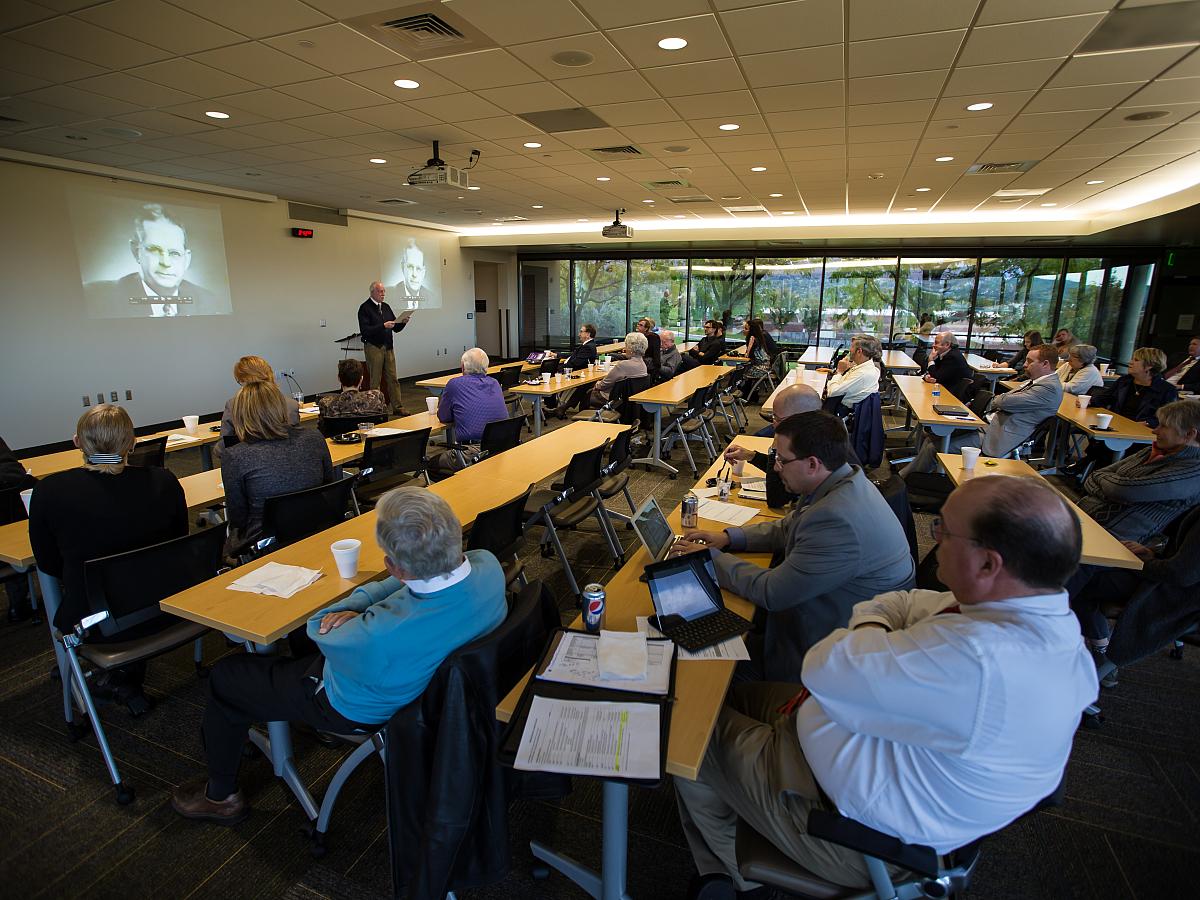This initiative aims to connect individuals on the University of Utah's Health Sciences and Main campuses, and wider community, by providing a resource for various events, courses, networking opportunities, and projects, which focus on narrative, medicine, and health.
DETAILS & RESOURCES*
*make sure to check each tab for details
BOOK DISCUSSION GROUPS
Our program draws on concepts developed by scholars advocating the importance of literature and narrative in healthcare education and practice. Faculty, staff, students, and healthcare professionals from the local community meet to discuss books that provide new perspectives on healthcare.
This medical student interest group began fall semester 2021 and has expanded to include students in all of the health sciences. Activities include discussions about books, articles, essays, creative writing, and podcasts about the impact of issues - societal, cultural, economic, psychological - on the practice of medicine and delivery of healthcare.
CONTINUING MEDICAL EDUCATION (CME) OFFERINGS
A Center member facilitates each discussion, guided by the topic, and we invite people with relevant expertise, experience, and informed opinions to join us. Generally, a variety of disciplines, including healthcare, public policy, philosophy, law, and business attend. When relevant, we make available, in advance, short articles to help enliven our discussions.
Our program draws on concepts developed by scholars advocating the importance of literature and narrative in healthcare education and practice. Faculty, staff, students, and healthcare professionals from the local community meet to discuss books that provide new perspectives on healthcare.
A monthly gathering off-campus of residents, physicians, medical students, nurses, and other health-care professionals who share original writing. Each session features a reading and writing prompt. For more information, contact Susan Sample.
Each fall, a scholar in health humanities visits campus to deliver several lectures and lead a hands-on workshop for medical students and faculty.
Ethics Explored which have been narrative-focused:
-
2023: Dr. Audrey Yap
-
2022: Dr. Perri Klass, Meghan O'Rourke, and Judith Farquhar
-
2021: Kwoya Fagin Maples, Katherine Standefer, and MK Czerwiec
-
2020: David Colton and Dr. Victoria Sweet
DEFINITIONS
The definition that informs our work here draws upon scholarship on the use, relevance, and critical significance dating back to the early 1980s, of “narrative”, and is broadly divided into three areas: illness narratives, narratives about illness, and narrative as a clinical tool. Although narrative traditionally was conceived of as written or oral in expression, it encompasses many forms, including but not limited to: performance, photography, visual art, and sculpture.
-
llness narratives are the stories and accounts of the experience of illness and suffering expressed by patients. They use narrative to explore the effects of illness and to reconstruct new identities, incorporating their changed/diseased bodies into the stories of their lives that illness has disrupted.
-
Narratives about illness are used primarily by medical and health-care professionals and trainees to communicate clinical knowledge. They range in style and genre from patient charts and case presentations to anecdotes, stories of unusual clinical encounters, and provider memoirs. These narratives, told from a medical point of view, interpret patients’ illnesses in terms of pathological and physiological signs and symptoms.
-
Narrative as a clinical tool refers to ways in which physicians and health professionals take into consideration patients’ narratives when clinical assessing them. Rita Charon, MD, a physician and literary scholar at Columbia University, refers to this approach as “narrative medicine.” Health-care practitioners are encouraged to develop competence in narrative skills, including listening, close reading, interpreting, and bearing witness to patients’ stories. By learning these skills through study of the humanities, practitioners may develop better relationships with patients and ultimately improve their delivery of clinical care.
EVENTS
EVENTS OFFERING CME
PUBLICATIONS
RUBOR
~ Reflections on Medicine from the Wasatch Front ~
Rubor, a medical humanities journal, is an instrument of humanism and a creative forum for the humanities at the U of U-School of Medicine. On behalf of readers and contributors in Salt Lake City, the greater Utah community, and beyond, it seeks to provide a sense of community, belongingness, and expression of humanity, in the context of health and medicine.
VOICES
FROM
THE
FACULTY
The inaugural edition of Voices from the Faculty was published in 2020 with content that address aspects of medical practice, education, and training and how these impact our lives and relationships. This can include: emotional situations, tensions, and situations that are memorable for being inspirational as well as troubling.
VOICES
FROM
THE
HOUSE
STAFF
Voices from the House Staff (previously ...Residents) transmits emotional knowledge about the art of medicine gained through caring for patients, interacting with family members, and navigating schedules. It bears witness to operating in the space of expert yet learner and challenges frequently silenced in the culture of medicine.
VOICES
FROM
THE
WARDS
Voices from the Wards is published by the Gold Humanism Honor Society senior class - U of U School of Medicine. The purpose is to transmit emotional knowledge between classes of medical students. Booklets are designed to fit in white coat/scrub pockets, serve as a reference when emotionally strained, or recalling our own initial forays into the clinical world of medicine.
VIDEOS
SUSAN SAMPLE, PhD, MFA
Writer-in-Residence
HCI (Huntsman Cancer Institute)
Susan created videos which highlight various narratives, including, "Take a Moment to Reflect"
The HCI Wellness & Integrative Health Center hosts a YouTube playlist which includes all of Susan's videos, as well as ones from the Artist-in-Residence, HCI Music Therapy, and cooking & workout/meditation routines too.
WRITING
GROUPS
-
RESIDENT WRITING - Residents, attending physicians, and medical students meet monthly to critique writing across genres and generate new original writing
-
HUNTSMAN CANCER INSTITUTE: PATIENT WRITING - Patients, caregivers, and family members meet monthly to write and share reflective writing
-
NARRATIVE MEDICINE WRITING SESSIONS - Medical students, faculty, and staff meet bimonthly during the academic year to learn about and practice narrative medicine
OPPORTUNITIES
-
Graduate Medical Education (GME) wellness elective
-
Graduate course in Genetic Counseling
-
Huntsman Cancer Institute workshops
-
Resiliency Center: seminars, programs, & workshops
-
55-word Story workshops
CME
Learner Resources





